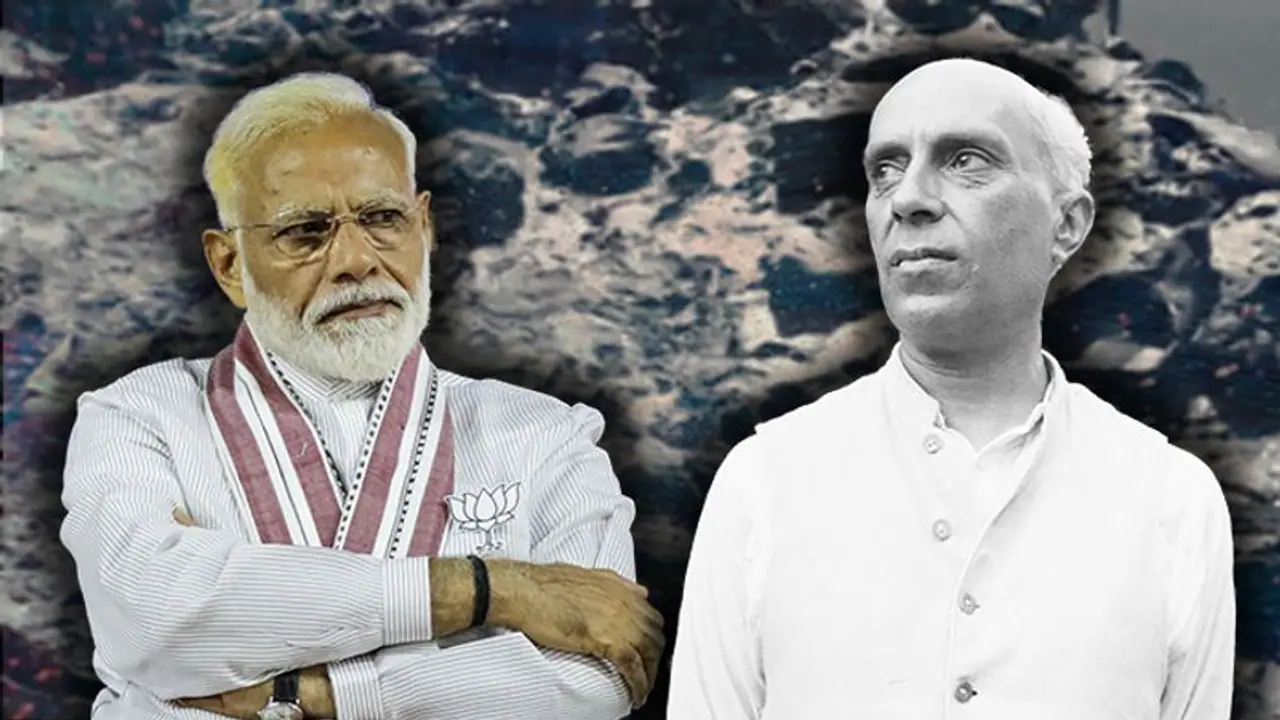'On the second day of the accident, the administration made mounds of bodies and set them on fire. No photographer was allowed near the site.'
New Delhi: While the focus may have been Prime Minister Narendra Modi not visiting Ram Temple or him chanting 'Jai Shri Ram', many overlooked his reference to the 1954 Kumbh Mela stampede. Modi surprised many when he resurrected the 1954 stampede at the religious gathering in Allahabad during Jawaharlal Nehru's term as PM. But what happened in 1954?
Nehru makes a comeback!
"When Pandit Jawaharlal Nehru was Prime Minister, thousands of people were killed in the Kumbh stampede in Allahabad", said Modi on Wednesday. The Prime Minister claimed, Nehru allegedly tried to suppress the news to save the image of his party and himself. "The stampede victims' families’ names were never mentioned, and not a single rupee was given to them (as compensation) ... It was insensitivity, and the country's first prime minister committed this sin", lambasted Modi. And with this, Pandit Nehru has made a comeback into this high pitched 2019 general election.

Courtesy: YouTube/British Pathé
But, what happened in 1954?
February 3, 1954, has been known as one of the most horrific chapters in independent India’s history. Lakhs assembled at Sangam to take a holy dip on the occasion of Mauni Amavasya but only to witness a heinous stampede that killed approximately 1000 people on the ghats and injure around 2000.
Amrit Bazar Patrika's photographer NN Mukherjee was an eye witness to the incident. In an interview to The Statesman, he said, "The day of Mouni Amavasya in Kumbh in 1954 was a day of tragedy for me besides, of course, a day of achievement as a press photographer. I was the only one who could take pictures of a stampede that killed over a thousand people, who were crushed at the Kumbh Mela. I get goosebumps even today recalling how I took photographs by crisscrossing over the bodies of dying or dead men, women, and children, who had fallen on the ground after a collision between two groups. My clothes were torn to pieces in a rush. A dying old woman had grabbed my pant with who knows what hope. I tried in vain to free my pant from her grip; and when the grip loosened, it had torn off a part of the cloth."
Was Nehru responsible in any way?
In the interview to The Statesman, Mukherjee pinned the blame on Nehru. He alleged, "The then Prime Minister (Jawaharlal Nehru) and President Rajendra Prasad were to come for a bath at Sangam on the same day. Thus all the police and administrative officers were busy making arrangements for their arrival."
"It is also surprising that even though more than a thousand people were trampled to death, the administrative officials were ignorant of it because these officials were enjoying tea and snacks at the Government House (today’s Medical College) till four o’clock", claimed Mukherjee.
He continued, "On the second day of the accident, the administration made mounds of the bodies and set them on fire. No photographer was allowed near the site. To take photos, I dressed like a villager, carried a small camera in an umbrella and pretended that I was there to see the body of my grandmother one last time. I fell on the feet of a constable…one official allowed me on the condition that I return quickly after seeing my ‘grandmother’. I ran towards the bodies and fell on the body of an old woman crying. Then I quickly took a photo of the burning pile of bodies. When the picture was published the next day, then Chief Minister Govind Ballabh Pant let out a curse, ‘Where is the H******a photographer?’ It was a big compliment for me."
As Eastern Uttar Pradesh gets ready to vote, an area that Priyanka Gandhi is made Congress in charge of, Modi resurrecting Priyanka's' great grandfather on Wednesday may emotionally appeal to the electorate. And if it indeed does, the ramification in this high stake battle can be huge.
